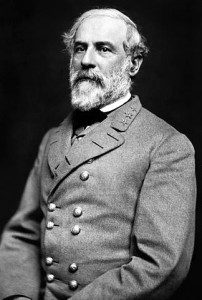The Confederate Congress Passes A Tax
April 24, 1863
The Confederate Congress levied a comprehensive “tax in kind” on April 24, because it needed money for funding war efforts. Subject to the tax is one tenth of all land produce for the year of 1863.
Private Day, of Union Company B, 25th Massachusetts Volunteer Infantry, was in Plymouth, North Carolina on April 24. Private Day passes along to us the following observations:
“The noise of the battle is over and we are no longer harassed by war’s dread alarms, but can now sit down, eat our fresh shad and herring and drink our peach and honey in quiet. Our provost marshal, Major Bartholomew of the 27th Massachusetts, has opened a broker’s office where he is exchanging salt and amnesty for allegiance oaths, and as this is the fishing season, he is driving a right smart business. The natives for miles around come in droves, take the oath, get their amnesty papers and an order for salt, and after being cautioned not to be found breaking their allegiance they go away happy. There are probably some honest men among them who would like to do about right if they dared to, but the whole thing looks ludicrous, for there is evidently not one in a hundred of them who would ever think of taking the oath were it not for the hope of obtaining a little salt. The boys call it the salt oath.”
